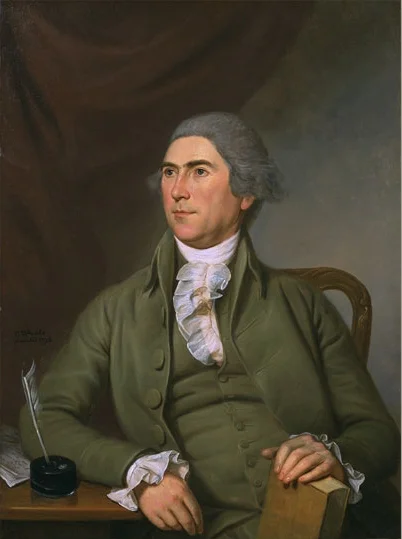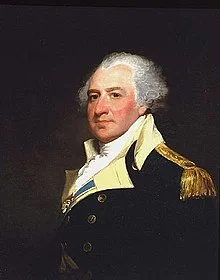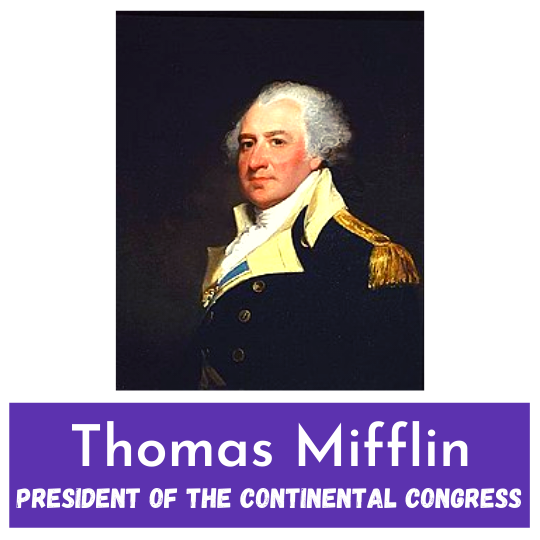Charles Pettit Hears From a Sad Dismounted Knight
Charles Pettit was a Deputy Quartermaster General of the Continental Army.
Pettit shared the responsibility of feeding, clothing and housing the American Revolutionaries.
Charles also spent time as New Jersey Secretary of State and in the Continental Congress.
A Sad, Dismounted Knight
“Col: Hamiltons Compliments to Mr Pettit will be obliged to him, if he can give him any hope of soon having the saddle, he was so kind to undertake to procure for him. At present he is a sad dismounted knight.”
The humorous quote above is the entirety of a letter written by Alexander Hamilton to Charles Pettit.
Pettit, as a Deputy Quartermaster of the Continental Army, was responsible for making sure all of the Americans’ supplies were taken care of.
This one quote demonstrates Mr. Pettit’s importance to the Revolutionary War, though it is difficult to determine if Hamilton was telling a joke or truly saw himself as a ‘sad dismounted knight.’
New Jersey Secretary of State
Charles Pettit was operating a successfully merchant firm in New Jersey and parts of Pennsylvania as the American Revolution approached.
Pettit was working as personal secretary to New Jersey Royal Governor William Franklin (Ben Franklin’s kid) but resigned in protest of Britain’s treatment of Boston. Two years later, after independence had been declared, Charles took the position back up, assisting Revolutionary Governor William Livingston.
When his home State had written a new Constitution, his position title was changed to Secretary of State, making him New Jersey’s first. Soon, Pettit accepted when the Continental Congress offered him the opportunity to work as Deputy to Quartermaster General Nathanael Greene.
Deputy Quartermaster General
During his time as Deputy Quartermaster, Pettit had a hand in several important transactions. For example, he helped resolve a crisis in ‘forage.’
Forage was a general term for agricultural products, specifically grains. The Continental Army went through a significant amount of forage and at times supplying it became difficult.
Although several southern States provided this food, the Army had difficulty getting appropriate nutrition to the troops stationed in the North. Northern farmers charged various, unpredictable prices while shipping from the South added to the price (as well as the need to feed the men doing the transporting).
Charles wrote a long, detailed explanation to General Washington (which can be read here). Washington, in turn, contacted six States asking for their legislatures to take action. Pettit’s letter was forwarded with Washington’s and, eventually, led to several States creating new regulations to help feed the Continental Army for the duration of the war.
Continental Congress
Having moved to Philadelphia during the Revolutionary War to be closer to the Continental Congress during his Deputy-ship, Pettit decided to stay.
Charles continued his mercantile business but also received election to the Pennsylvania House of Representatives. Soon thereafter, Pettit was chosen himself to attend the Continental Congress.
After two years on the national stage, Charles Pettit retired from public life.
If you are interested in learning about other Founders from New Jersey, check out these interesting articles on John Hart and Nathaniel Scudder.
To read more about New Jersey’s role in the American Revolution, pick up a copy of ‘New Jersey in the American Revolution’ from the affiliate link below. It gives a great ‘big picture’ look at that State’s underrated role in independence.
Don’t forget to subscribe to our email list for a new Founder every day.






